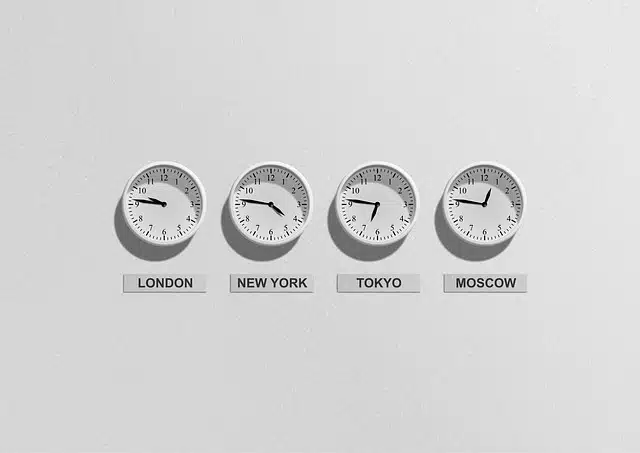
The idea of schedule refers to the period of time in which an activity takes place.
From the Latin horarius , the term schedule refers to that which is related to or belongs to the hours . Its most common use is linked to the time period during which an activity is carried out.
It is evident that, to understand the notion of schedule, one must understand the concept of time. This physical quantity measures what is subject to change. When something changes from one state to another, the period elapsed in that process can be measured in a unit of time.
Time, in turn, can be measured through the use of a clock . The purpose of establishing a schedule, for example, is to indicate the precise moment at which a future event will take place so that people can organize their routine.
The time change
One of the concepts most closely linked to the schedule is DST ( Daylight Saving Time ) which is carried out at a certain time of the year in most countries; It contemplates the hours of light that a day has and stipulates a fixed civil time where it is intended that citizens can have the greatest number of hours of natural light in their work day, so that absurd electricity costs are avoided.
The time change is mainly linked to economic issues and was first proposed by William Willett , an English builder who in 1905 , while taking a horseback ride before breakfast, thought about the number of Londoners who were still sleeping, when the sun had already risen several hours ago; In addition, being a golf fan, he did not like to shorten his course because of the sunset.
He then proposed advancing working hours, but to make it less abrupt, he recommended moving forward 20 minutes a week, taking into account the sunrise and sunset, so that the hours of light could be made the most of . His project was not approved until 1916 by the Germans, the first to apply daylight saving time. Later other countries in Europe did so, and later Russia and the United States .

Time zones arise from the division of the Earth into 24 areas.
Energy savings
Currently, the time change implies considerable energy savings . In Spain , for example, it is estimated that it reaches up to 5% in the domestic sector; For this reason, it is said that the reasons behind it are economic , although it also includes other benefits, such as caring for the environment and taking advantage of natural resources .
Not all countries have adhered to the time change, although almost all those in the northern hemisphere of the planet have. It is believed that one of the things that promoted its use in various countries had to do with the first oil crisis that the world experienced in 1974 , as a way to make better use of electricity .
time zones
The Earth is divided into 24 areas (which cut it vertically and horizontally); Each one of them represents a time zone . Depending on the location of each country on the map, it will belong to one zone or another.
They are called spindles because each area has a shape similar to a spinning spindle . Regarding their arrangement, they are centered on meridians that have a longitude that is always a multiple of 15° .
Before they existed, in each city the time was measured based on the location of the sun and there were minute differences between cities that belonged to the same region; With the implementation of time zones, this problem was solved, by synchronizing all the clocks in the same area.
In turn, the time of each region is set by the so-called coordinated universal time ( UTC ), centered on the Greenwich meridian , whose area 0 includes London . When we move from a place with one time zone to another with a different one, we must: add one hour if we are heading east and subtract one if we are going from east to west. When the meridian is crossed, that is, 180° of the earth's surface is covered, then the time change will be 24 hours .
